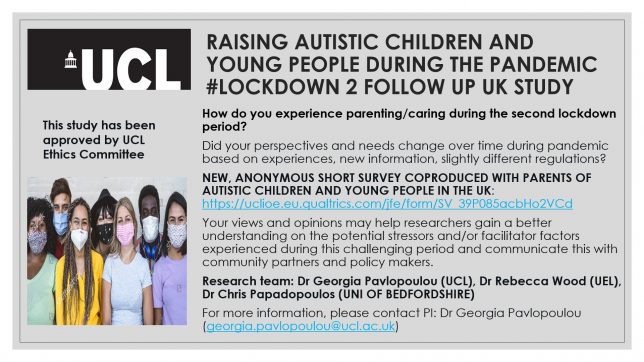The following information has been provided by André Strydom, a professor in intellectual disabilities at King’s College London and one of the authors of the research paper outlined below.
“As you may be aware, NHS England has announced that people with Down syndrome should be added to the clinically vulnerable list due to recent reports showing that they may be at increased risk for poor outcomes following a COVID-19 diagnosis. We have yesterday published our preprint report based on work done within the T21RS which may be good to circulate.
The preprint report is open access and available here https://www.medrxiv.org/content/10.1101/2020.11.03.20225359v1
The report contains information on symptoms, risk factors and outcomes following a COVID-19 diagnosis in people with Down syndrome.
Key findings are that, similar to the general population, the most frequent signs and symptoms of COVID-19 were fever, cough, and shortness of breath. Pain and nausea were reported less frequently (p<0.01), whereas altered consciousness/confusion were reported more frequently (p<0.01). Risk factors for hospitalization and mortality were similar to the general population (age, male gender, diabetes, obesity, dementia) with the addition of congenital heart defects as a risk factor for hospitalization. Mortality rates showed a rapid increase from age 40 and were approximately three times higher than for controls even after adjusting for known risk factors for COVID-19 mortality. The risk in those over age 40 was comparable to individuals in the general population aged 80 and older.
However, individuals under age 40 were approximately 90% less likely to die than those over age 40. Furthermore, few children age 19 and younger were severely affected, suggesting that the risk in children and young people could potentially be balanced against quality of life.
We would like to recommend that in addition to individuals with Down syndrome being offered flu vaccinations, vitamin D supplementation and the pneumococcus vaccine should also be considered this season, and we are working with Down syndrome organisations to have this considered – we would welcome the LD senate’s views on these recommendations.”

